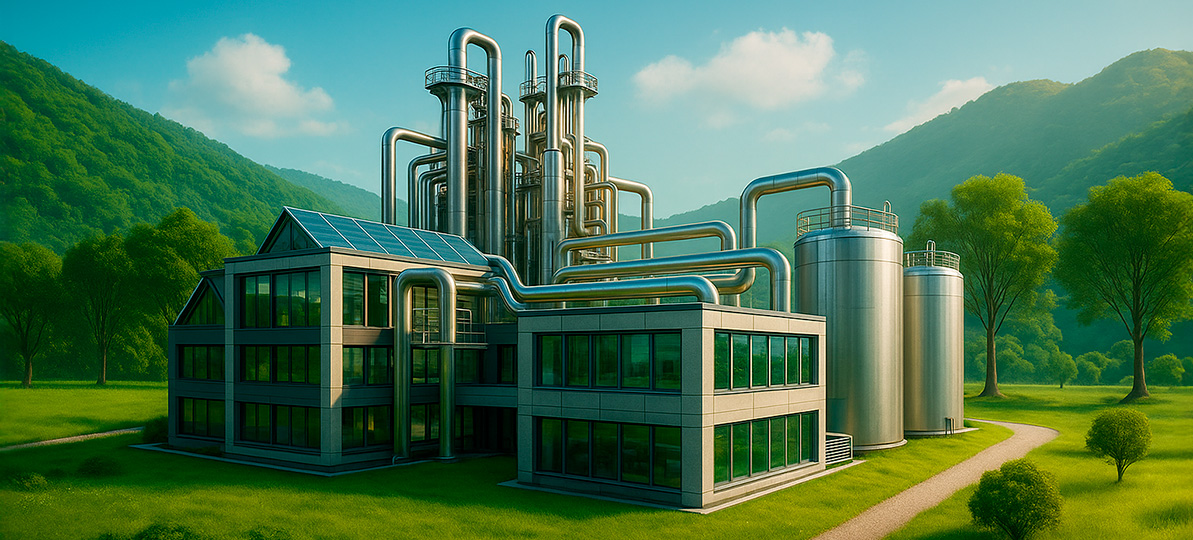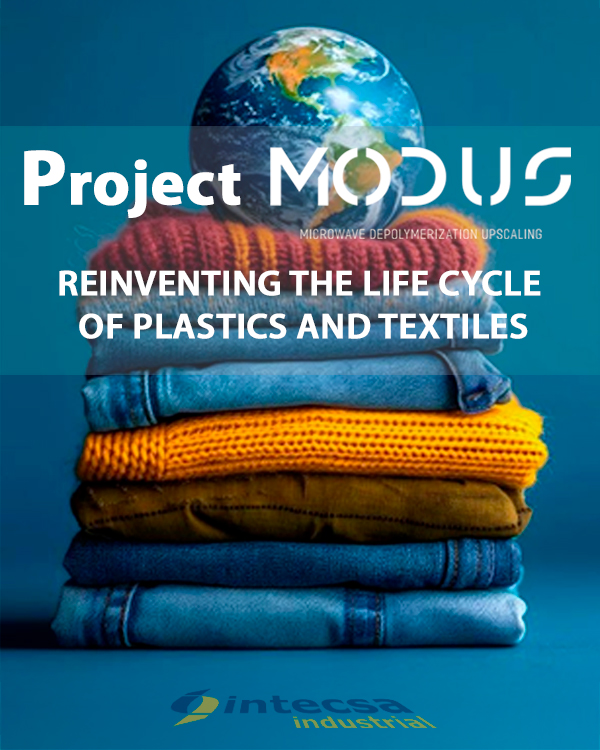
“LEADING THE WAY IN PLASTIC RECYCLING”
The project aims to recycle materials that are currently unrecyclable. The project focuses on recycling polyethylene terephthalate (PET) waste, used primarily in packaging and commonly known as polyester in textiles. The waste streams processed by MODUS, which are currently not treated with mechanical recycling technologies, will be transformed into products that meet the quality standards of virgin materials produced from fossil-based resources. To achieve this goal, a first-of-its-kind chemical recycling plant will be built as part of the project, based on its innovative microwave-assisted depolymerization (MADE) technology. MODUS will achieve a 100% reduction in greenhouse gas (GHG) emissions compared to the reference scenario based on the incineration of this unrecyclable waste using current technology. MADE technology breaks down PET molecules into their basic components, or monomers, recovering them in their pure form, chemically identical to the petroleum-derived raw materials used in conventional PET production.
By recombining these monomers, MODUS will recycle up to 43,800 tons of plastic and textile waste per year, producing 35,000 tons of high-quality recycled PET and polyester (CPET) annually. The monomers obtained through MADE and subsequent polymerization are identical to those produced from petroleum derivatives, allowing CPET to have the same quality and properties as virgin PET (VPET), unlike mechanically recycled PET (rPET), which is a lower-quality product. Although other depolymerization technologies are in the pilot phase, MODUS will be the first industrial plant to develop this technology on a commercial scale, which will prevent more than 120,000 tons of CO2 emissions per year. MODUS will significantly contribute to key European circular economy policy objectives.
Recycling materials that would otherwise be unrecyclable will help Spain meet the European recycling targets that will come into effect in 2025 (and which will increase over time). Furthermore, MODUS will provide practical solutions for extended producer responsibility systems for packaging and textile waste, particularly through the efficient recycling of textile fiber blends containing polyester. The project will create 100 direct and 300 indirect jobs. It will also foster the formation of new clusters in the region, promoting collaboration between businesses, research institutions, and local communities. Furthermore, it will promote high-quality circular products, reduce dependence on oil, and decrease reliance on raw materials from countries outside the European Union. The MADE technology included in the project has the potential to be expanded and scaled up to other European countries, potentially achieving full circularity in the PET and polyester value chains.


Funded by the European Union. Views and opinions expressed are however those of the author(s) only and do not necessarily reflect those of the European Union or the European Climate, Infrastructure and Environment Executive Agency (CINEA). Neither the European Union nor the granting authority can be held responsible for them
Views and opinions expressed are however those of the author(s) only and do not necessarily reflect those of the European Union or the European Climate, Infrastructure and Environment Executive Agency (CINEA). Neither the European Union nor the granting authority can be held responsible for them






